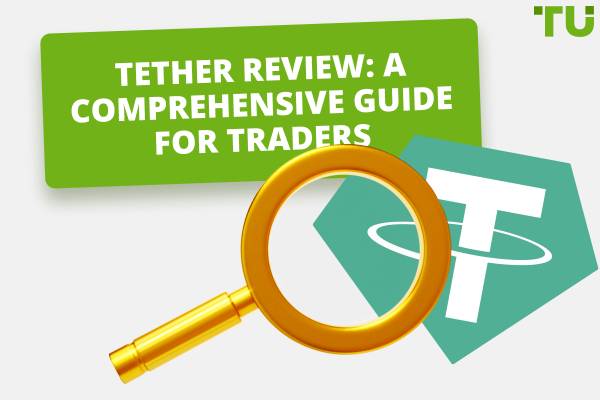Decoding Crypto Fees: Understanding Costs Of Transactions
Transaction fees vary widely, with factors including the specific cryptocurrency, network congestion, and transaction urgency influencing the cost.
Bitcoin fees can range from a few dollars to tens of dollars, not necessarily increasing with the transaction amount.
Ethereum's "Gas fees" are paid in Ether (ETH), are generally considered expensive and fluctuate based on transaction complexity and network demand.
Stablecoin fees, like USDT, are generally lower and dependent on the underlying blockchain.
Other cryptocurrencies, such as Ripple (XRP), Litecoin (LTC), and Cardano (ADA), typically incur lower transaction fees.
It's crucial to compare network, exchange, wallet, and gas fees for informed crypto transactions.
Understanding the nuances of transaction fees is crucial in the world of cryptocurrencies. Why do these fees exist, how high are they, and who benefits from them?
In this article, we will demystify the various types of fees in the cryptocurrency ecosystem. By offering clarity on this complex topic, our aim is to help you make informed decisions and save on fees in your crypto ventures.
Start trading cryptocurrencies with BybitWhat are transaction fees?
Transaction fees in cryptocurrencies are charges applied to transactions for processing and validating them on the blockchain. These fees go to network miners or validators as compensation for their computational work in securing and recording transactions.
Types of crypto fees
Fees in crypto are not just a source of revenue for service providers; they are integral to the functioning and security of blockchain networks.
Firstly, transaction fees are essential for compensating network miners or validators. These are the individuals or entities responsible for processing and securing the transactions on the blockchain. Without these fees, the incentive to maintain the network's integrity and efficiency would significantly diminish. It's a symbiotic relationship - users get their transactions securely processed and recorded, while miners are rewarded for their computational work.
Secondly, exchanges - the bustling marketplaces for trading cryptocurrencies - also impose fees. These can include trading fees, withdrawal fees, and deposit fees. Each exchange has its own fee structure, tailored to its services and user base.
Lastly, certain blockchain networks have specific fees. For example, Ethereum's gas fees are designed to cover the computational energy required for processing and validating transactions on its network. This fee structure helps in regulating the network's load and ensuring efficient transaction processing.
In essence, these fees are the lifeblood of the cryptocurrency ecosystem, facilitating smooth and secure transactions across various platforms and networks.
Transaction fees
Transaction fees in the cryptocurrency realm are not just a mere charge but a cornerstone of blockchain functionality. Paid to the network miners or validators, these fees play a pivotal role in ensuring that a transaction is not only processed but also securely recorded on the blockchain. This mechanism serves a dual purpose: it incentivizes miners to continue their crucial work and helps manage the network's transaction load.
For instance, Bitcoin, the pioneer of cryptocurrencies, requires transaction fees to compensate miners who validate and add transactions to the blockchain. These fees can fluctuate based on network congestion; the more users transacting, the higher the fee to expedite transaction processing. Similar to this, each transaction in Ethereum entails a fee that depends on the amount of computational work necessary to complete the transaction.
Exchange fees
Cryptocurrency exchanges, the platforms where digital currencies are traded, impose various fees. Users engaging in trading activities often encounter fees such as trading commissions, withdrawal charges, and deposit fees. These fees are critical for the exchanges as they form a major part of their revenue stream, enabling them to offer secure, efficient, and continuous services.
To illustrate, let's consider a comparative table of fees across prominent exchanges:
| Exchange | Trading Fee | Withdrawal Fee | Deposit Fee |
|---|---|---|---|
0.1% | Variable | Free | |
0.1% | Variable | Free | |
0.05 - 0.6% | Variable | Free | |
0.16 - 0.26% | Variable | Variable | |
Variable | Variable | Variable |
This table provides a snapshot of the fee structures, highlighting that while trading fees are generally low, withdrawal fees can vary, and most exchanges do not charge for deposits.
Tip. In order to reduce commissions for trading on cryptocurrency exchanges, traders can use pending orders (buy-limits and sell-limits, for example). Traders with such orders add liquidity to the exchange, and therefore the exchange welcomes such activity by reducing trading fees.
Network fees
Network fees are unique to each blockchain network, serving as a mechanism to compensate for the computational resources required to process and validate transactions. A quintessential example is Ethereum's gas fees. These fees fluctuate based on the network's current demand and the complexity of the transactions being processed.
For instance, executing a simple transaction or a complex smart contract on the Ethereum network incurs gas fees. These fees are paid in Ethereum's native currency, Ether (ETH), and vary depending on the network's congestion level. During times of high demand, gas fees can surge significantly, reflecting the increased competition for transaction processing.
Another example is the Bitcoin network, which also charges fees for transaction processing. These fees are not fixed and depend on the data size of the transaction and the network's current load. The fee ensures that transactions are prioritized and included in the next block on the blockchain.
Network fees play a crucial role in maintaining the efficiency and security of blockchain networks, effectively balancing demand with the network's capacity.
Wallet fees
Cryptocurrency wallet fees can occur for transactional activities or when converting cryptocurrencies to fiat currencies and vice versa.
Transaction fees are charged when users send cryptocurrency. This cost varies based on the blockchain and current network traffic. Conversion fees apply when exchanging cryptocurrencies for fiat currencies, compensating for the exchange service and fluctuating exchange rates.
For instance, the Exodus wallet charges a dynamic fee for sending cryptocurrencies, adjusted according to network conditions. Conversions within the wallet include a spread to cover the fee. Hardware wallets like Ledger and Trezor don't impose direct transaction fees but require payment of network fees for blockchain operations.
Best crypto exchanges
How much are cryptocurrency transaction fees?
The cost of cryptocurrency transaction fees is not a fixed number but a variable influenced by multiple factors. These fees can significantly differ based on the type of cryptocurrency, the current congestion level of its network, and the urgency of the transaction.
Each cryptocurrency operates on its own blockchain with unique protocols, impacting the fee structure. For example, Bitcoin, known for its secure but relatively slow network, might charge higher fees during peak transaction periods. In contrast, other cryptocurrencies with faster but less congested networks may have lower fees.
Network congestion plays a critical role in determining fees. During times of high transaction volume, fees tend to increase as users compete to have their transactions processed promptly. This is particularly evident in networks like Ethereum, where gas fees can spike during periods of heavy usage.
In addition, transaction urgency affects the fee. Users in a hurry to complete their transactions may opt to pay a higher fee to expedite the process. Conversely, those willing to wait can pay a lower fee and accept a potentially slower transaction time.
Bitcoin (BTC) fees
The cost of transacting in Bitcoin (BTC) is subject to significant variability. The main factor influencing Bitcoin transaction fees is network congestion, which can range from a few dollars to tens of dollars. Notably, these fees are not directly proportional to the transaction amount.
Whether you're transferring $100 or $1,000, the fee may not significantly differ. Instead, it's more closely related to the transaction's data size and the current congestion level of the Bitcoin network.
Example: How do I calculate Bitcoin transaction fee?
Calculating a Bitcoin transaction fee involves considering two key elements: the transaction size (in bytes) and the network's fee rate (usually measured in satoshis per byte). The formula is:
Transaction Fee = Transaction Size × Fee Rate
For example, if your transaction is 250 bytes and the current fee rate is 60 satoshis per byte, the fee would be:
250 bytes×60 sat/byte=15,000 satoshis
Converting satoshis to Bitcoin for the total fee, you divide by 100 million (since 1 BTC = 100 million satoshis).
Ethereum (ETH) fees
Ethereum's transaction fees, commonly referred to as "Gas fees," are a dynamic aspect of the network. Paid in Ether (ETH), these fees can fluctuate considerably, especially in times of high network congestion, and Eth fees are generally considered expensive.
Ethereum fees are determined based on the complexity of the transaction and the current demand on the network.
Example: What is the transaction fee for Ethereum?
Ethereum gas fees are calculated using a formula that considers the gas limit (maximum amount of gas you're willing to use for your transaction) and the gas price (the amount of Ether you're willing to pay per unit of gas). The formula is:
Gas Fee = Gas Limit × Gas Price
For instance, if your transaction has a gas limit of 21,000 units and the current gas price is 200 Gwei (1 Gwei = 0.000000001 ETH), the fee would be:
21,000 × 200 × 0.000000001 = 0.0042 ETH
This formula provides a way to estimate your transaction costs on the Ethereum network, keeping in mind that both the gas limit and gas price can vary depending on network conditions and the complexity of your transaction.
Stablecoins fees
Stablecoins, such as USDT, USDC, and others, are known for their relatively stable value and lower transaction fees compared to cryptocurrencies like Bitcoin and Ethereum. Their fees are generally lower because these coins are often built on existing blockchain networks that facilitate efficient and cost-effective transactions.
However, the stablecoin's underlying blockchain may have an impact on the actual fee. For example, a stablecoin on the Ethereum network might incur gas fees, while those on more efficient networks could have lower costs.
Example: How much are USDT coin fees?
To calculate USDT transaction fees, consider the blockchain on which USDT is hosted. For USDT on Ethereum (ERC-20), fees are based on Ethereum's gas prices. The formula is:
Transaction Fee = Gas Used × Gas Price
Assuming a gas limit of 50,000 and a gas price of 100 Gwei, the fee would be:
50,000 × 100 × 0.000000001 ETH = 0.005 ETH
For USDT on other blockchains, like Tron, the fee structure would be different and generally lower.
Other cryptocurrencies fees
Cryptocurrencies such as Ripple (XRP), Litecoin (LTC), and Cardano (ADA) often have lower transaction fees compared to Bitcoin and Ethereum. The lower fees are attributed to different network architectures and consensus mechanisms, which can handle transactions more efficiently. These fees are usually just a small fraction of a dollar but can vary based on network traffic and congestion.
Example: What are gas fees on XRP?
Unlike Ethereum, XRP does not use the concept of gas. Instead, it has a minimal transaction cost to prevent spam. This fee is destroyed rather than paid to validators. The transaction cost can fluctuate but is usually very low. For instance, if the base fee is set at 0.00001 XRP, a standard transaction will cost this amount. This fee can slightly increase during high network loads but remains significantly lower than the fees for Bitcoin or Ethereum.
Transaction Fee (XRP) = Base Fee
Hence, the fee for a typical XRP transaction would be 0.00001 XRP under normal network conditions.
Crypto transaction fees comparison
When engaging in cryptocurrency transactions, it's crucial for users to be aware of the various types of fees that can be incurred. These include network fees, exchange fees, and wallet fees. Understanding and comparing these fees across different cryptocurrencies and platforms is essential for making cost-effective and informed decisions.
Given the dynamic nature of the cryptocurrency market, it's also important to stay updated with the current fee conditions, as they can change rapidly due to factors like network congestion and market demand.
To aid in this comparison, here's a simplified table that encapsulates the fee structure across different cryptocurrencies and platforms:
| Cryptocurrency | Network Fee (Average) | Exchange Fee (Average) | Wallet Fee (Average) |
|---|---|---|---|
Medium (Varies) | 0.1 - 0.25% | Low to Medium | |
High (Varies) | 0.1 - 0.25% | Low to Medium | |
Low | 0.1 - 0.25% | Low | |
Low | 0.1 - 0.25% | Low | |
USDT (ERC-20) | High (Varies) | 0.1 - 0.25% | Low to Medium |
Low | 0.1 - 0.25% | Low |
This table provides a general overview and helps in comparing the cost implications of different cryptocurrencies. However, for precise information, it's advisable to check the latest fee details on specific exchanges and wallet platforms.
Conclusion
While the average transaction fee for cryptocurrencies can vary widely, it's important for users to understand the factors that influence these fees. Network congestion, the data size of the transaction, and the desired transaction speed all play a role in determining the fee.
Glossary for novice traders
-
1
Cryptocurrency
Cryptocurrency is a type of digital or virtual currency that relies on cryptography for security. Unlike traditional currencies issued by governments (fiat currencies), cryptocurrencies operate on decentralized networks, typically based on blockchain technology.
-
2
Bitcoin
Bitcoin is a decentralized digital cryptocurrency that was created in 2009 by an anonymous individual or group using the pseudonym Satoshi Nakamoto. It operates on a technology called blockchain, which is a distributed ledger that records all transactions across a network of computers.
-
3
Yield
Yield refers to the earnings or income derived from an investment. It mirrors the returns generated by owning assets such as stocks, bonds, or other financial instruments.
-
4
Ethereum
Ethereum is a decentralized blockchain platform and cryptocurrency that was proposed by Vitalik Buterin in late 2013 and development began in early 2014. It was designed as a versatile platform for creating decentralized applications (DApps) and smart contracts.
-
5
Leverage
Forex leverage is a tool enabling traders to control larger positions with a relatively small amount of capital, amplifying potential profits and losses based on the chosen leverage ratio.
Team that worked on the article
Vuk stands at the forefront of financial journalism, blending over six years of crypto investing experience with profound insights gained from navigating two bull/bear cycles. A dedicated content writer, Vuk has contributed to a myriad of publications and projects. His journey from an English language graduate to a sought-after voice in finance reflects his passion for demystifying complex financial concepts, making him a helpful guide for both newcomers and seasoned investors.
Dr. BJ Johnson is a PhD in English Language and an editor with over 15 years of experience. He earned his degree in English Language in the U.S and the UK. In 2020, Dr. Johnson joined the Traders Union team. Since then, he has created over 100 exclusive articles and edited over 300 articles of other authors.
Tobi Opeyemi Amure is an editor and expert writer with over 7 years of experience. In 2023, Tobi joined the Traders Union team as an editor and fact checker, making sure to deliver trustworthy and reliable content. The topics he covers include trading signals, cryptocurrencies, Forex brokers, stock brokers, expert advisors, binary options.
Tobi Opeyemi Amure motto: The journey of a thousand miles begins with a single step.













